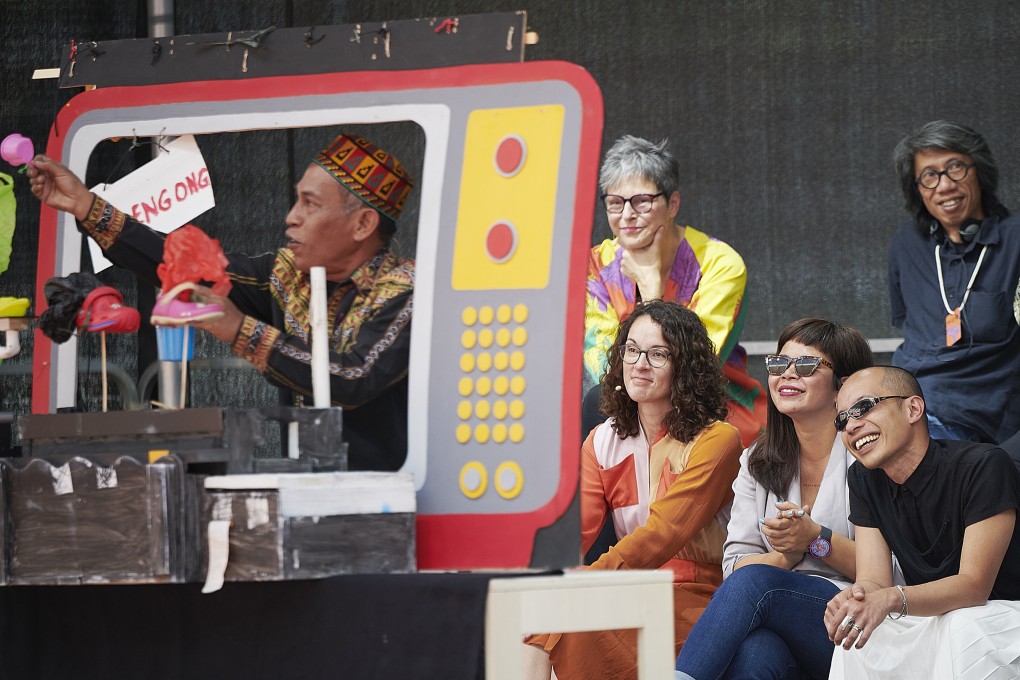Documenta 2022: curated by Asians for first time, German art event’s highs and lows as opening week kicks off
- The unique way Indonesian collective Ruangrupa organised this edition of the influential contemporary art event in Kassel is a talking point in itself
- Mural by one Indonesian group was removed after complaints about anti-Semitic images, days after organisers defended decision to include Palestinian collective

It won’t have taken long for casual visitors to Kassel this past week to notice that the German city of 200,000 has been transformed into a small corner of Indonesia. They might have caught the distinct whiff of clove cigarettes in the air, spotted the hundreds of wayang cardboard puppets in Friedrichsplatz park, or come across the all-female ensemble clad in hijabs performing exuberantly on an outdoor stage.
It is the opening week of Documenta, widely considered to be one of the most influential contemporary art events in the world and one that is all the more eagerly awaited because it only takes place once every five years, in Kassel. And this year, for the first time in its 67-year history, it is curated by Asians: specifically an Indonesian collective called Ruangrupa, who have invited a large contingent of artists and performers from Indonesia to join them in Germany.
Founded in 1955 by Kassel-born curator Arnold Bode to reinvigorate the post-war art scene in Germany, Documenta initially stood out by showing the kind of avant-garde modern art that was condemned as “degenerate” by the Nazis and banned from public view for years. It evolved into a 100-day global art event known for site-specific, experimental projects that do not always produce saleable art objects, such as the 7,000 oak trees planted by Joseph Beuys over five years for Documenta 7 in 1982.
Even for Kassel, Documenta 15 this year will go down in the annals as particularly bold in the way it has been organised, which was apparently chaotic but bursting with joie de vivre.

The team of artists, architects, writers and social activists that make up Ruangrupa (stylised as “ruangrupa” with a lower case “r”) was selected in February 2019 to curate Documenta 15.
Meaning “a space for art”, Ruangrupa is a non-profit collective founded in 2000 amid a flourishing of independent grassroots organisations soon after the toppling of the Suharto dictatorship. It is a loose network of members who rarely make art objects together. Instead, they facilitate exchanges and collaborations on their home turf: an open-house venue named Ruruhouse in the south of Jakarta that hosts exhibitions, workshops and lots of parties. They say that this kind of creative, open-ended process is also art, just as a painting by a lone genius is.